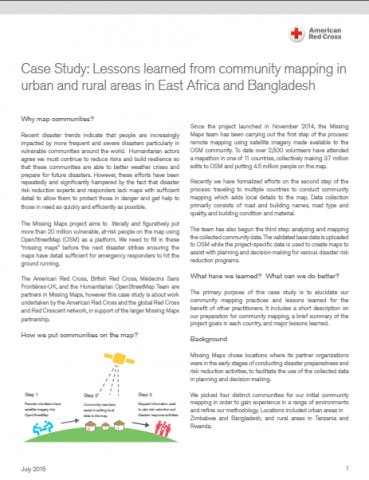Poultry farming plays a big role in rural development in Bangladesh. It helps to improve the economy and create jobs. Many families depend on poultry farming for their livelihood. This article will explore the many benefits of poultry farming in Bangladesh.
Economic Impact
Poultry farming has a strong impact on the economy. It helps to reduce poverty in rural areas. Many families earn money by selling eggs and chickens. This extra income helps them to buy food and other necessities.
Income Generation
Many rural families in Bangladesh raise chickens. They sell the eggs and meat in local markets. This helps them to earn a steady income. Even small-scale farmers can make a good profit from poultry farming.
Boosting Local Markets
Poultry farming also helps to boost local markets. Farmers sell their products in nearby towns and cities. This creates more business for local shops and traders. The money earned stays within the community, helping everyone to prosper.
| Benefit | Description |
|---|---|
| Income Generation | Families earn money from selling eggs and chickens. |
| Boosting Local Markets | More business for local shops and traders. |
| Poverty Reduction | Helps to lift families out of poverty. |
Job Creation
Poultry farming creates many jobs in rural areas. People can work on farms or in related businesses. This helps to reduce unemployment and improve living standards.
Direct Employment
Poultry farms need workers to care for the chickens. They also need people to clean and maintain the farm. This creates many job opportunities for local residents.
Indirect Employment
Other businesses support poultry farming. These include feed suppliers, transporters, and market sellers. These businesses also create jobs for people in the community.
Training And Skills Development
Working in poultry farming helps people to learn new skills. This includes animal care, business management, and marketing. These skills can be used in other jobs or businesses.
- Direct Employment: Jobs on the farm, like caring for chickens.
- Indirect Employment: Jobs in supporting businesses, like feed suppliers.
- Skills Development: Learning new skills for future opportunities.
Improving Livelihoods
Poultry farming helps to improve the livelihoods of rural families. It provides them with food and income. This helps to improve their quality of life.
Food Security
Chickens provide a steady supply of eggs and meat. This helps to improve food security for families. They have access to nutritious food all year round.
Health Benefits
Eating eggs and chicken is good for health. They are rich in protein and other nutrients. This helps to improve the health of family members.
Women’s Empowerment
Many women in rural areas are involved in poultry farming. This helps them to earn their own income. It also gives them more control over household decisions.
| Benefit | Description |
|---|---|
| Food Security | Steady supply of eggs and meat for families. |
| Health Benefits | Improves health with nutritious food. |
| Women’s Empowerment | Gives women more control and income. |
Challenges in Poultry Farming
Despite its benefits, poultry farming faces many challenges. These include disease outbreaks, lack of training, and market access. Addressing these challenges can help to improve the industry.
Disease Outbreaks
Disease outbreaks can cause many chickens to die. This can lead to big losses for farmers. It is important to have good biosecurity measures in place.
Lack Of Training
Many farmers lack training in modern poultry farming practices. This can lead to poor management and lower productivity. Providing training can help to improve their skills and knowledge.
Market Access
Some farmers have difficulty accessing markets to sell their products. This can limit their income and growth potential. Improving market access can help farmers to earn more money.
- Disease Outbreaks: Can cause big losses for farmers.
- Lack of Training: Leads to poor management and lower productivity.
- Market Access: Difficulty in selling products.
Government Support
The government can play a key role in supporting poultry farming. This includes providing training, financial support, and improving market access.
Training Programs
The government can provide training programs for farmers. This can help them to learn modern poultry farming practices. It can also improve their productivity and income.
Financial Support
Providing financial support can help farmers to invest in their farms. This can include loans, grants, and subsidies. It can help them to buy better equipment and improve their facilities.
Improving Market Access
The government can help to improve market access for farmers. This can include building better roads and transportation networks. It can also include creating new markets and trade opportunities.
| Support | Description |
|---|---|
| Training Programs | Help farmers learn modern practices. |
| Financial Support | Loans, grants, and subsidies for investment. |
| Improving Market Access | Better roads and new market opportunities. |

Credit: www.researchgate.net

Credit: en.wikipedia.org
Frequently Asked Questions
What Is Poultry Farming?
Poultry farming involves raising birds like chickens and ducks for meat or eggs.
Why Is Poultry Farming Vital In Bangladesh?
It boosts the rural economy by providing jobs and food security.
How Does Poultry Farming Create Jobs?
It employs farmers, feed producers, and veterinarians, boosting local employment.
What Are The Benefits Of Poultry Farming?
It offers income, nutrition, and economic growth for rural communities.
Conclusion
Poultry farming plays a vital role in rural development in Bangladesh. It helps to improve the economy, create jobs, and improve livelihoods. Addressing the challenges and providing support can help to further boost the industry. This will benefit many rural families and contribute to the overall development of the country.





















